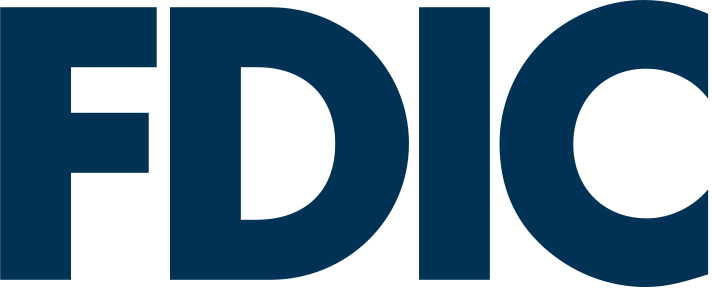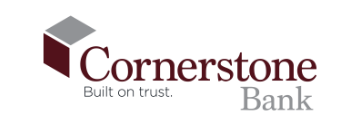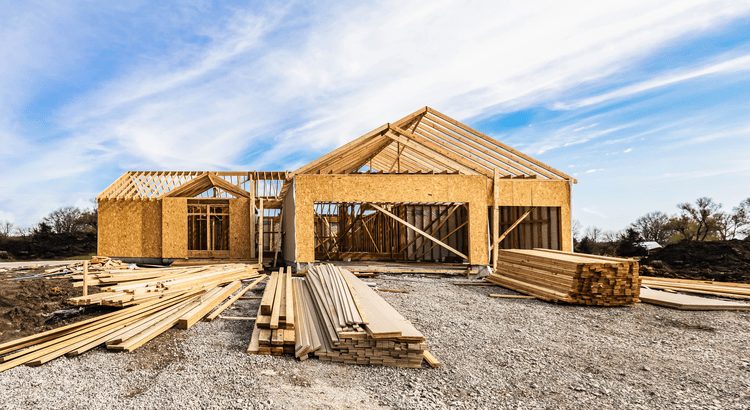Homebuyer Resources
Ready to begin your journey towards homeownership? Use our Homebuyer Resources page to get you started. Have a question? Connect with one of our Mortgage Loan Officers
Contact our team. Our experienced and trusted loan officers will work to find the best options available to you and answer any questions you have.
The Mortgage Process
Ready to find the home of your dreams? Before you get started, see what you can expect to see during the mortgage process.
Get Pre-Approved
- Talk with a lender to see what kind of mortgage is best for you and what you can afford.
- See if you qualify for any down payment assistance programs.
- Provide necessary documentation such as W-2’s, Pay stubs, etc.
Build Your Team
- Select the expert real estate agent you’d like to work with and notify your lender so they can set up a communication channel. This will be key in keeping everything moving during your buying process.
Find the Right Home
- Work with your realtor to find the home that meets your needs and budget.
- Submit and negotiate an offer on the home.
Apply for Your Mortgage
- Re-connect with your lender to see what the best options are based on the home you selected.
- Provide additional documentation to your lending team.
- Get an appraisal on the home.
- Lock in the interest rate on your mortgage.
Get Ready to Close
- Select an attorney to represent you and sign the purchase and sales agreement.
- Select your homeowner’s insurance agent and set up your homeowner’s insurance policy.
Close on Your New Property
- Review and sign closing documents.
- Receive the keys to your new home.
Mortgage Terms to Know
Buying your home is a big financial step, learn some of the important terms and definitions you will see along the way.
Amortization
Repayment of loan principal over time with scheduled payments that consist of both principal and interest. The loan balance declines by the amount of the principal in the scheduled payment.
Annual Percentage Rate (APR)
The APR shows the costs of your mortgage loan as a yearly rate. The APR includes upfront fees, such as points, as well as interest, and is intended to show you the true cost of your loan. When comparing one loan to another, be sure to compare APRs to get a true picture of what each one will cost you.
Closing Costs
The cost of getting a mortgage in addition to the down payment. This is usually 3-6% of the total loan amount.
Credit Bureau
An agency that collects data on individual payment records on loans, credit cards, and other debts, and compiles a credit history based on this information. They also provide credit reports to lenders, creditors, and consumers.
Debt-to-Income (DTI) Ratio
The DTI ratio compares how much a borrower owes with how much they earn in a given month.
Equity
Equity is the portion of the property that you actually own through your payments versus the portions that you still owe the mortgage lender. The longer you stay in your house and make the required payments, the more equity you will have.
Escrow
An account set up on your behalf in which a portion of your monthly payment is held to pay property taxes and insurance.
Gross Income
Amount earned before taxes or types of payroll deductions. Gross income may include overtime commissions and dividends and come from any other resources for which steady history can be shown.
Loan-to-Value (LTV)
A mortgage’s LTV ratio describes the ratio of the value of the property to the amount of outstanding mortgage balance.
Points
Points, also known as discount points, lower your interest rate in exchange for paying an upfront fee.
Pre-Qualification
While not an approval, this gives borrowers an estimate of how much money they can borrow to purchase a home.
Pre-Approval
A commitment from the lender to make a loan to a specified borrower prior to identification of the specific property.
Private Mortgage Insurance (PMI)
PMI is typically needed when financing a home and putting less than 20% down. Lenders require PMI to help cover the risk gap for the financing.
Mortgage Process Do’s and Don’ts
Ready to apply for a mortgage? Learn what you should do before you apply and what you should avoid after.
Do’s when you plan to apply:
Keep an Ongoing Paper Trail
You’ll need to maintain ongoing documentation related to income, employment verification, and current debts and obligations. Keep your W2s, tax return documents, pay stubs, and bank statements handy.
Provide Money Deposit Receipts
This includes an earnest money deposit from your personal bank account or gift funds. Gift funds are acceptable only if certain criteria are met. Reach out to your loan originator for clarification.
Maintain Employment and Income
You’ll need to show stability through the mortgage application period. This process goes much smoother if you keep your income steady and avoid major changes. Pay raises and promotions are exceptions to this expectation.
Create a Savings Plan
Buying a house is exciting, but focusing on saving during this period is key. You’ll need funds for an earnest money deposit, down payment, and closing costs. Any major purchases could impact your credit. Pay your bills on time and be mindful of spending habits.
Understand Credit Pulls
Your lender may pull a new credit report just prior to closing to check new debt. If your recent credit activity raises a concern, you may be asked to explain.
Ask Questions and Communicate
Your team is there to help you and answer any questions that might come up. Trust their expertise, communicate effectively and often, and learn what you can about the loan process to set yourself up for success.
Don’ts after you apply:
Close or Open Bank Accounts
Before you open, close, or transfer money across accounts, check with your loan officer on how this may affect your qualification or documentation. Changes could result in a delay for the loan origination.
Make Large Bank Deposits
If you deposit any money outside of your automated payroll deposits, especially cash, check with your loan officer on the documentation you will need to provide to verify their sources.
Change Jobs, Employer, or Employment
You can change jobs, as well as amend any tax returns, but you’ll need to make your loan officer aware because it may impact your qualification and documentation. If shifts do occur, you may need a new loan approval.
Make Major Purchases
This involves large spending prior to or during the contract period. It’s tempting to get new furniture, a car, or house appliances, but these purchases will hurt your savings, debt-to-income ratio, and credit utilization.
Open a New Line of Credit
This also includes closing credit lines, co-signing on loans, or making major purchases on credit cards.
Panic, Stress, or Isolate
Your team wants you to be successful, knowledgeable, and confident during this process. Whatever your finances, be sure to include all debts and liabilities on your mortgage application. Keep the lines of communication open and trust they want you to get across the finish line.
New Homebuyer Checklist
Once you close on your house, you’re not done yet! For starters, you’ll still have to move, update your new address in various places, and make sure you’re prepared to live in your new home. It’s easy to forget the details, but we’re here to help.
Key Address Updates
- Move over or set up utilities for your new address (energy, water, gas, internet, cable, etc.).
- Update your mailing address with USPS (including forwarding address updates).
- Update your ID or driver’s license.
- Update your car registration and insurance.
- Update your voter registration for any needed address changes.
- Update your address on your credit card accounts.
- Update your new address with your employer.
- Find doctors and reliable professionals around you or update your new address in your online medical portals.
- Transfer subscription services to your new address.
- Register your child(ren) to a school within your area.
Moving and Post-Moving Essentials
- Organize and unpack your moving boxes by room.
- Consider autopay to stay on top of monthly home payments and expenses (HOA fees, property taxes, etc.).
- Purchase a security system.
- Purchase cleaning supplies that fit your new home’s needs.
- Stock up your pantry, fridge, freezer, and cabinets.
- Meet your neighbors, invite family and friends over to celebrate once you’re settled.
- Line up a pet sitter (or other arrangements) for moving day.
- Child-proof and pet-proof your new space.
Homebuying Tips with Troy Johnson
Building Your Homebuying Team
Wondering where to start when looking for a home? Start with building your homebuying team. Find out who the two most important homebuying team members you will need when looking for a home.
What Impacts Your Credit Score
Having a good credit score can increase your purchasing power when buying a home. Find out what factors can most impact your credit score.
Buying a Home? Here’s What You Should Expect the Downpayment to Be.
Have you been wondering how much is needed for a downpayment on a mortgage in today’s market? With the different options you have for a downpayment amount it may be lower than you think.
What are the Sources for a Downpayment?
Do you know what the acceptable sources for a downpayment on a mortgage are? With the different options you have, securing the downpayment on a mortgage may be more attainable than you think.
The Pros and Cons of Buying a New Build
If you haven’t already considered looking into newly built homes, it may be time you do just that. With modern features and a larger inventory than in past years it could be a great option for you.
Not Ready to Buy? You Should Still Get Pre Approved!
Are you worried about missing out on your dream home? Getting a pre-approval can help make sure you are ready by giving you clarity about your budget.
“Simplifying the Housing Market” Blog
Please note that all mortgage loans are subject to income and credit approval. Other restrictions may apply. All applicants are subject to complete underwriting based on program guidelines.












 Translate
Translate